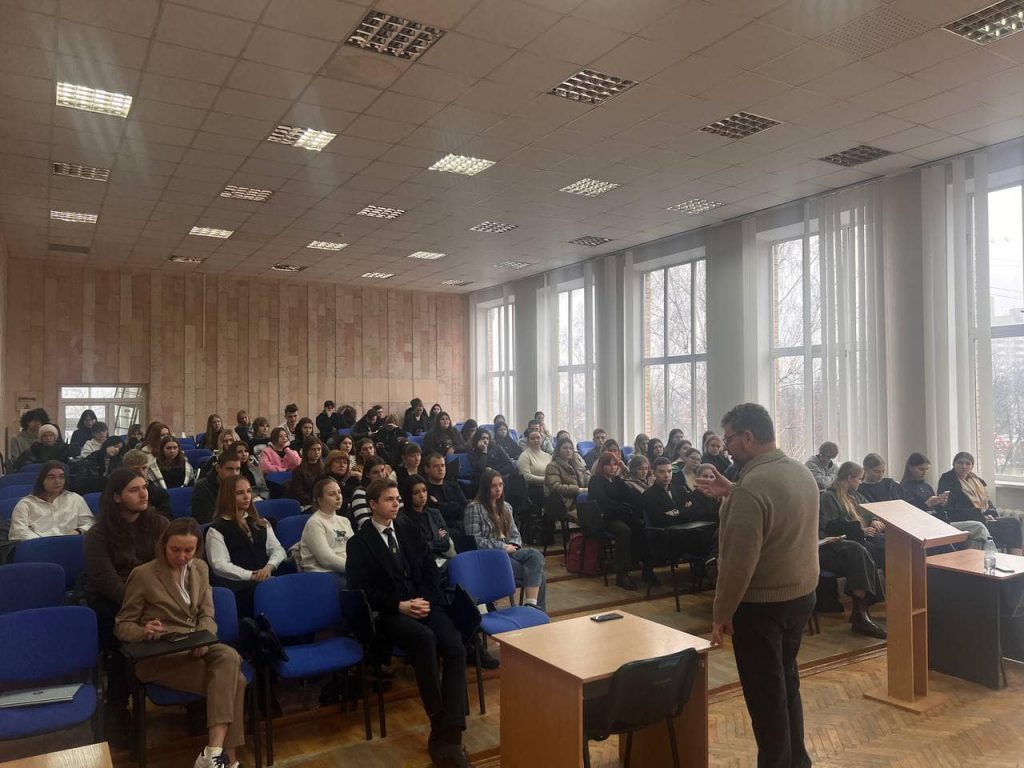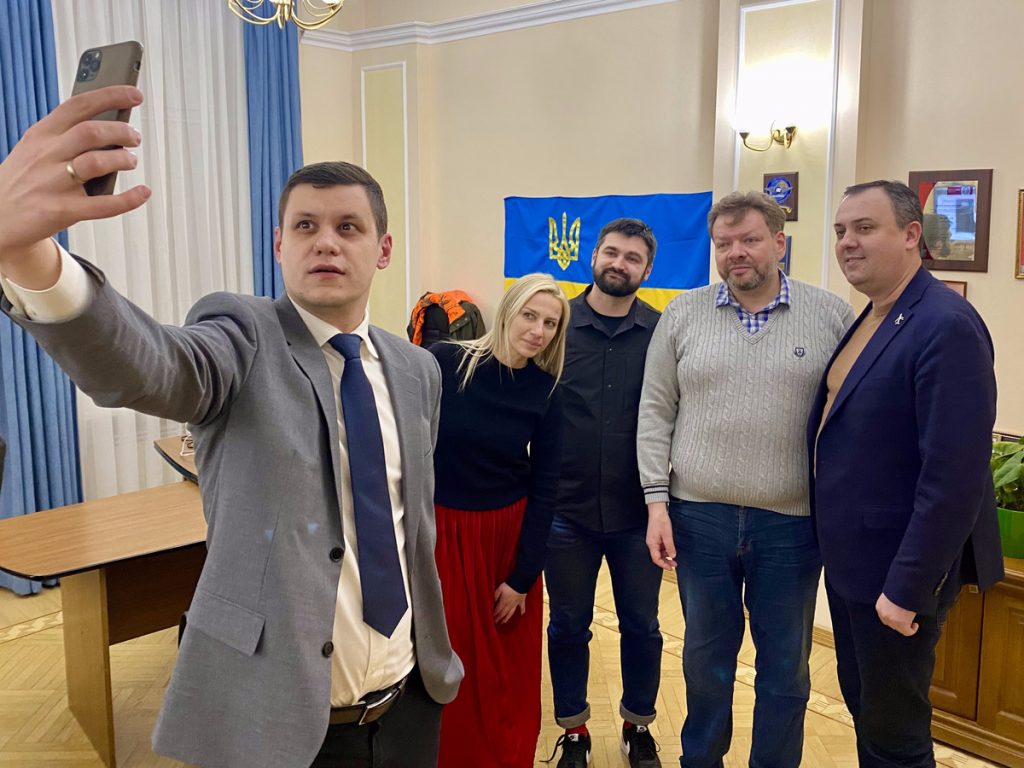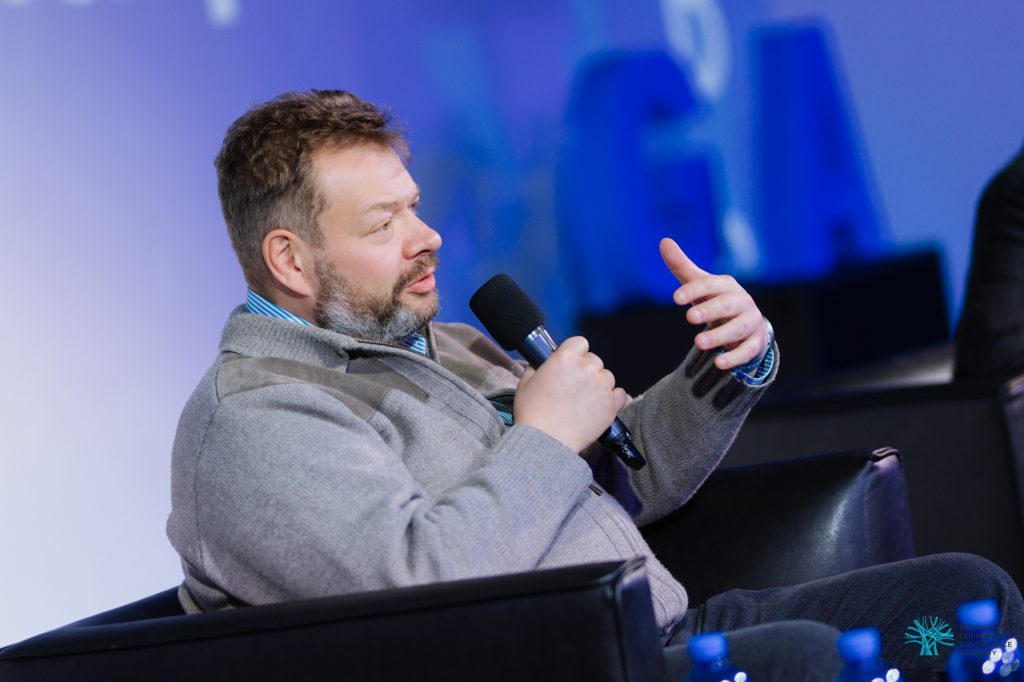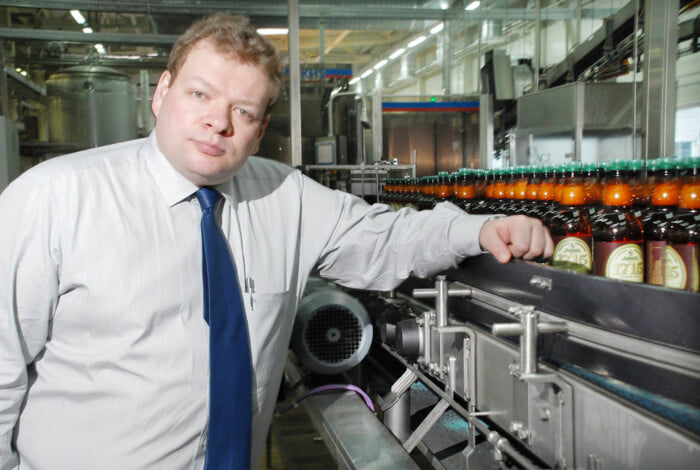«You sent me questions like I was a celebrity, only one thing was missing: “What do you think of Taylor Swift?”»,” jokes Petro Chernyshov, who in the fall became a pro bono advisor to the Minister of Education and Science of Ukraine on corporate governance at universities and the development of the National Academy of Sciences of Ukraine, before starting a conversation with MC.today. The former president of Kyivstar has long attracted the attention of journalists. Not only because of his high positions, but also because of his interesting life story.
Now he plans to turn NAU into a «engineering university on the level of good ones in Eastern Europe» and continue reforms in other domestic universities. If this is not hindered by opponents of the changes, who, according to the advisor, are many among the rectors.
Petro Chernyshov told MC.today journalist Dmytro Kruglikov what complicates the education reform, how he and his team plan to change the National Academy of Sciences and where they will look for investments for the university, the reasons for his dismissal from Kyivstar and why he does not invest in Ukrainian companies.
Content
- 1 The path to becoming an advisor to the Minister of Education and Science and chairman of the Supervisory Board at NAU
- 2 Why Ukrainian university rectors can stop education reform
- 3 How the Rector will be elected at NAU
- 4 24 thousand potential investors in LinkidIn. Is it possible to make NAU profitable?
- 5 Why I left Kyivstar in July 2018 and whether the company will be nationalized
- 6 Which Ukrainian companies can be invested in
- 7 From a brewery «Vienna» to NAU
The path to becoming an advisor to the Minister of Education and Science and chairman of the Supervisory Board at NAU
This appointment is connected with my family’s history. My mother was a math teacher at a university, my grandmother was a physics teacher at a pedagogical university. My grandfather is a professor, doctor of science, math teacher, and head of a department at a university. Even my grandmother’s parents were village teachers in the Perm province of the former Russian Empire.
That’s why I feel very close to education issues. And I have always wanted to do something in this area. Earlier I founded Kontora Pi project. I became a member of the Board of Directors of the Kyiv School of Economics. And now that I am no longer in big business, I decided that with my managerial experience and contacts I could help Ukraine in reforming higher education.
That’s why I approached one of the deputy ministers of education and science with a proposal – if you want to reform something in the industry, I can take part in it. At the time, I knew nothing about the National Academy of Sciences. Later, there was a conversation about reforming the NAU, and it started like this: «By the way, we need big changes in one of the Ukrainian universities».
It is quite possible that my activities in Ukrainian higher education will not be limited to the NAU. But in Ukraine, any reform meets with serious resistance because it affects the interests of influential people. And this reform contradicts the interests of some rectors and politicians.
Why Ukrainian university rectors can stop education reform
Rectors are very influential. The fact is that every university has many graduates. Some of them are MPs, businessmen, ambassadors. And the rector of a Ukrainian university usually holds his position for a very long time. The graduate remembers the rector when he was a young active teacher, and he trusts him.
Therefore, the rector can call the graduate and say: «There is a conspiracy against your Alma Mater, they want to destroy it». And the graduate will use his or her connections.
In Ukraine, the system of rector rotation is not perfect; there is still work to be done and changes to be made. Many of them want to sit in their chair forever, like African dictators. To do this, they need a controlled system of electing the rector, when the entire educational institution votes for him or her.

This is a very strange system, because a normal university is like a big business. Contract teaching, real estate, laboratories, grants. A rector is the same as a CEO or president in business. Imagine if I, when I was the president of Kyivstar, had approached the shareholders with a proposal: let the entire workforce elect me for a new term. They would have thought I was crazy. But in Ukrainian higher education, such a system is in place.
How the Rector will be elected at NAU
In most economically advanced countries, the rector is sought and elected by the Supervisory Board – In particular, in the United States, England, Japan, the Netherlands, and Germany. It can be called differently – Senate, Board of Directors. It can include alumni, students, and teachers. It is not necessarily elected in a competition, sometimes it is appointed by the Ministry of Education. The Supervisory Board elects the rector through an open or closed competition, in some countries the appointment is approved by the Ministry of Education, but only the Board manages this process. I would like to emphasize that such a board consists of people whose reputation is the most important thing, and they do not have a conflict of interest with universities, and this is carefully checked.
Another member of the Board is a well-known Ukrainian businessman, Volodymyr Tsoi, a graduate of the National Academy of Sciences and founder of the Intertop network. Out of the seven members of the Council, I knew only Tsoi when I was a businessman, and I have met the others now I have no common financial, family or other interests with them.
We have already had three meetings. We plan to approve the requirements for the new rector who will lead the university in the future in the spring and announce the competition. We are also waiting for the Cabinet of Ministers of Ukraine to issue a resolution on the experiment in higher education. It will allow the Supervisory Board to elect the head of the university.
24 thousand potential investors in LinkidIn. Is it possible to make NAU profitable?
Now the NAU is a loss-making «business» and it is a very difficult question whether it can be made profitable. I don’t have a simple answer to this question. Because you can be an unprofitable business by design. For example, the Ministry of Education gives us funds to educate state-funded students. So maybe it’s normal for us to be unprofitable, or maybe not. I don’t know.
Even at some of the very wealthy and well-known universities in the United States, up to 60% of the budget is made up of charges from alumni associations. Without these funds, such universities would also be unprofitable.
At NAU, we are building our own alumni association, which will be a truly effective community. With my help, the initiative group wrote and approved its charter. We have found a president for it and will soon announce its creation.
To do this, the project’s working group searches for, meets, communicates, and reconnects with alumni: for example, a search on LinkedIn alone revealed about 27 thousand #NAU tags. I think 90% of them graduated from this university. That is, more than 24 thousand people are candidates for membership in the alumni association. The fact that they are registered on LinkedIn may indicate that they work in technology, IT. Therefore, it is not very difficult for them to make a contribution of $100-300 per year.
If we agree with at least 20% of these 24 thousand people, which is about 5 thousand people, to send membership fees of, say, $200 per year, we will get $1 million. This is a good amount for the National Academy of Sciences. This money can be used to improve the material and technical base: to build laboratories and coworking spaces.
With some alumni, we talk not only about financial support, but also about expert support, such as lectures, workshops, master classes for students, and teacher training. Especially with those graduates who have gone abroad, have extensive practical experience, a successful business, and have something to tell.

In addition, every major global corporation has a budget to work with educational institutions. If a graduate works or has worked with one of them, he or she can come to his or her employer and offer, for example, to build a laboratory at the National Academy of Sciences, conditionally transferring his or her credit of trust, and then the university will be able to conduct substantive negotiations with this company on cooperation. This is how it works in the world.
For the corporation itself, it is not only charity. If you are, for example, Microsoft or Intel, it costs nothing for your budget to build a laboratory at the National Academy of Sciences. But they will be able to hire talented students who will work there, and involve teachers in joint research projects. Or the student will become the founder of a startup that will be a service provider for Microsoft.
In addition, large corporations used to set up laboratories in Russian universities. Now no one wants to and will do this, and corporations have a free budget. Our goal is to use this money to rebuild and develop the National Academy of Sciences, its facilities, and technical potential.
Later, we will announce two well-known Ukrainian companies that have already agreed to invest in the construction of the NAU Fab lab. We are currently working on approving the projects of these laboratories.We are also talking to «Kyivstar», but they are currently dealing with the consequences of a hacker attack. Therefore, they have a different focus and priorities for now, but of course, we plan to invite «Kyivstar» to partner with us.

Why I left Kyivstar in July 2018 and whether the company will be nationalized
It happened because of a conflict with my boss, the COO of VEON, the parent company of Kyivstar, Schell Morten Jonsen. We had very different views on the development strategy. For example, he wanted us to be dependent on the headquarters in Amsterdam and not to be able to make any decisions independent of them here in Ukraine. I did not agree with this.
We can say that I defended the independence of the company’s Ukrainian business unit. But it should be noted that at that time I was in charge of VEON’s divisions in six countries, including Uzbekistan. I also defended their independence.
As for the possibility of nationalization Kyivstar, from a logical point of view, the state should not have made this decision. But we have seen many times that in Ukraine, individuals can make illogical decisions, and there is a certain unpredictability and unpredictability. Therefore, I believe that nationalization is quite possible.
This decision will be senseless and harmful for business and for Ukraine’s investment attractiveness. Mikhail Fridman, Peter Aven and Andrey Kosogov have no influence on Letter One, which is owned by VEON. We know this because VEON is a listed company.
Its shares are listed on NASDAQ, which means that the company must disclose financial information. And if VEON has now indicated that Friedman’s group has no influence on them, and it turns out otherwise, VEON’s top managers will go to an American prison and pay a very large fine. This is not an exaggeration, it is a real risk for them. Therefore, it is obvious to me that VEON does not lie and that Friedman does not have any secret levers of influence on the company’s activities.
Which Ukrainian companies can be invested in
I wouldn’t invest in a company that is a Ukrainian legal entity right now. Because investments are poorly protected in Ukraine. If we are talking about companies operating in Ukraine, they have to be registered abroad – Delaware in the US, Cyprus, England, Estonia, etc. Also, foreign investors will value an IT company registered in Ukraine at a very large discount.
For example, one and the same company can sell similar services in Ukraine and Germany for, say, $10 million. And while investors in Germany will see this $10 million, in Ukraine they will see only $2 million, and the company’s capitalization will be five times lower.
This is due to the risks of a country at war, the lack of a business environment, and the fact that there are no real venture capital funds in Ukraine. We can mention the Toloka syndicate of private investors, which is currently raising money to invest in Bolt shares, which is their sixth investment. But none of them were made to a company registered in Ukraine. Three American, London-based, German, and Estonian Bolt, although Toloka is 95% Ukrainian investor-owned.
For example, I recently wrote about Liki24, which is invested by Toloka’s competitor, the Iclub syndicate. Liky24 is a Ukrainian company. But Iclub’s idea is that Liky24 is successfully operating in Italy and Romania and now wants to enter the German and Austrian markets.
If a Ukrainian company has managed to enter the market of a European country, then it is serious and worth investing in. Although there are not many such cases, they do exist.
Is it worth investing in Ukrainian government bonds? Currently, hryvnia bonds pay about 18% per annum. At first glance, this is not bad, but at the same time, we don’t know what the hryvnia/dollar exchange rate will be even this year. If you get an annual return of 18% in hryvnia and the exchange rate drops by 20%, it is a risky investment.
From a brewery «Vienna» to NAU
I continue to invest in various projects. I can confirm that I still have investments in several European craft breweries. We hear about Ukrainian craft beer, we see it on the shelves, but we don’t know how successful these breweries are from a financial point of view-they are not transparent.
I invest in European breweries because, on the one hand, craft beer is growing very fast in Europe. On the other hand, it is an understandable and nostalgic topic for me. I got into the beer industry in 1999 when I was working at the electrical engineering company ABB – the office of the international recruitment agency Amrop found me there and recommended me to the beer industry. Although at that time I knew nothing about managing beer companies.

Later, I became the CEO of the brewery «Vienna», which was founded by Austrian entrepreneurs during the Russian Empire. Internally, they offered me the position of general director of the Ukrainian «Slavutych». Then I lived in Ukraine for ten years. In 2014, I applied for Ukrainian citizenship and received it in 2015.Then I did not connect my life only with Ukraine. But now the NAU has appeared. The change is entirely due to the full-scale war – we need to help Ukraine.
Author: journalist MC.today Dmitry Kruglikov



Spelling error report
The following text will be sent to our editors: